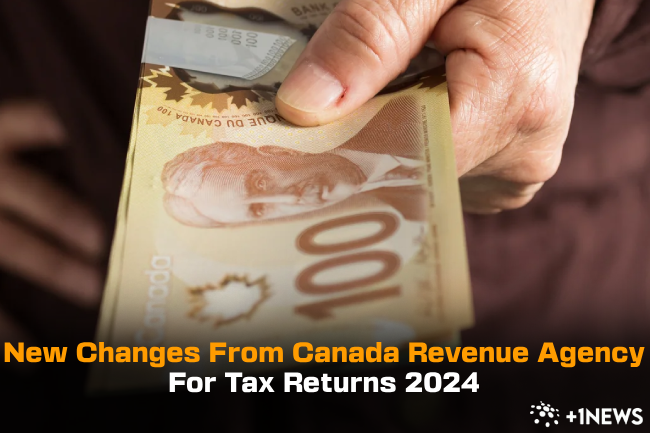Canada’s tax rules have changed a bit this year, so here’s what you need to know before filing your tax returns this year.
The Canada Revenue Agency (CRA) has shared updates for tax returns 2024, including new tax credits, changes to the T1 notice of assessment, a different way to claim home office expenses, and more.
Tax season in Canada started on February 19, 2024. Make sure to file your taxes and pay any owed amounts by April 30, 2024.
Here’s a summary of the changes to your 2023 income tax return from the CRA for when you file your taxes in 2024:
New Changes For Tax Returns 2024
Income Tax Return Package
Starting in 2024, the CRA won’t include line-by-line instructions in paper tax returns. This means each paper bundle will have 30 fewer pages.
Electronic Payments for Amounts Exceeding $10,000
If your payment is more than $10,000, you must pay the Receiver General of Canada electronically from January 1, 2024. Failure to do so may result in a penalty unless you can’t pay electronically for some valid reason.
First Home Savings Account
Starting from April 1, 2023, you can usually deduct the money you put into a First Home Savings Account (FHSA), and when you take out money for qualified reasons, you don’t have to pay taxes on it.
If you made an FHSA in 2023, you can subtract up to $8,000 from your taxable income for that year. Just make sure you put the money in by December 31, 2023, and report it on your 2023 tax return.
When you get your assessment notice, it might show a table with your FHSA balances, similar to the one for the Registered Retirement Savings Plan (RRSP).
Home Office Expense Deductions for 2023 Taxes
You can’t use the flat rate method for claiming home office deductions on your 2023 tax return. Instead, use the comprehensive method.
Make sure to get your employer to sign Form T2200, Declaration of Conditions of Employment if you want to claim home office expenses.
Deductions for Tradespeople’s Tools
From 2023, if you work in a trade and spend money on necessary tools, you can now get a maximum deduction of $1,000 for those tools, which is an increase from the previous $500.
The rules for the deduction on expenses for apprentice mechanics’ tools have also changed.
COVID-19 Benefit Repayments
On your 2023 Income Tax Return and Benefit Return, you can deduct any COVID-19 benefit repayments you made in 2023. Look for Line 23200 to claim this deduction for federal, provincial, and territorial repayments.
Advanced Canada Workers Benefit (ACWB)
The new Advanced Canada Workers Benefit program automatically sends out payments to eligible workers.
If you got the benefit last tax year, you don’t have to apply or fill out a tax form. They stopped using the Canada Workers Benefit Advance Payment Application (Form RC201) last year.
Multigenerational Home Improvement Tax Credit
Get money back for improving your house! The multigenerational home improvement tax credit lets you claim up to $50,000 in renovation costs.
This credit is for qualified homeowners who want to make a separate apartment in their home for someone specific. You can get a maximum of $7,500 for each claim.
Disability Tax Credit
Now, applying for the disability tax credit is easier than ever! You can fill out Part A of the application form online using CRA My Account or by phone.
Your information will be automatically filled in based on what the CRA already has on file.
After you complete the online form, you’ll get a reference number. Give this number to your doctor, who will use it to fill out Part B of the form.
Updated T1 Notice of Assessment
The T1 notice of assessment and notice of reassessment have been updated to provide clearer and more detailed information.
If you’re expecting a refund and haven’t signed up for direct deposit, you’ll receive a paper T1 notice of assessment and a separate check due to changes in how the check notices are made.
New Residential Property Flipping Rule
Starting January 1, 2023, there are updates to the Residential Property Flipping Rule. If you sell a house in Canada (or the right to buy one) that you owned for less than a year before selling, any profit is now seen as business income instead of a capital gain.
Return of Fuel Charge Proceeds to Farmers Tax Credit
Self-employed farmers and people in partnerships running farms with permanent bases in Alberta, Manitoba, New Brunswick, Newfoundland and Labrador, Nova Scotia, Ontario, Prince Edward Island, or Saskatchewan can now use the farmers’ tax credit, which gives back the money collected from the fuel charge.














